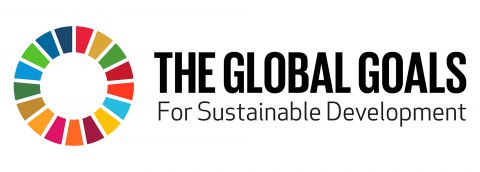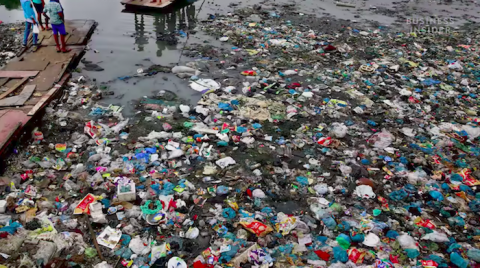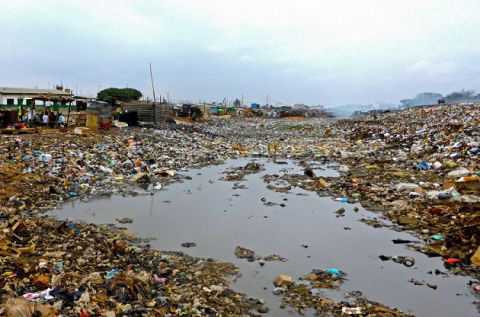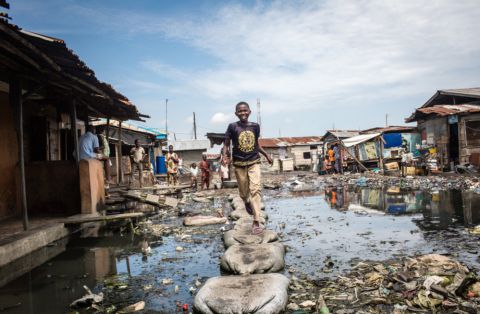A few months ago, when the Joint Monitoring Programme released their first report to measure progress on elements of goal 6, it brought about some mixed feelings amongst some NGOs. While some were glad to receive confirmation that the report places an equal focus on the quality of the water provided as well as its quantity, others were concerned that their hard work in providing basic water and sanitation was written off.

Credit: @Global Goals
The Sustainable Development Goals (SDGs) have settled the argument that the baseline quality for water and sanitation services should be safely managed. This refers to water, which is free from shit and poisonous chemicals – either naturally occurring or introduced by human activities. The water should be available 24/7 when it is needed and located within the premises/household. Similarly, safely managed sanitation services includes, contactless faecal disposal as opposed to throwing human bodily waste into rivers, streams and seas. Sanitation toilets should have privacy, preserve dignity and be located within the house. Every household deserves one toilet per family!
Does the above standard sound like a new concept to our ears? This is what the majority of middle class families experience in countries such as Britain, Cuba, France, Germany, Netherlands and Singapore. These countries arrived at this stage through a combination of different factors, such as the drive to modern and political expediency, the negative effects on power holders (in terms of their well-being and comfort) and the breakdown of primary healthcare.

A polluted Kasadi River, which resulted in local stray dogs turning blue.
Credit: @Business Insider
The case of Britain is one of the most interesting of all. It was the summer of 1858, when Britain experienced the great stink of London. During which, individual households where responsible for disposing their own faeces. As a result of the great stick of 1858, Parliament voted to invest in contactless sanitary systems. The intervention in London had a positive multiplier effect on the whole of England. It set new standards for the provision of water and sanitation services along with the respect to protect water bodies from being used as bins and cemeteries for pets. Unfortunately rivers such Kasadi River in Mumbai and Odaw River in Accra are now suffering from the same abuse the Thames experienced in 1858.

A polluted Odaw River in Accra, Ghana.
Credit: Ghana Institute of Online Journalism
There is an on-going debate on how expensive networked contactless sanitation systems are and whether they are good for developing countries with poor economies. This argument which is ineffective, unsustainable and unsanitary needs to be abandoned. The contactless toilet network in Britain is sustained through water tariffs, designed to encourage equitable financing. People with larger houses and more rooms pay higher fees. In France, they made it mandatory by law for all households to have toilets.

Poor sanitation in Lagos, Nigeria.
Credit: WaterAid/ Tom Saater
Some of the world’s great cities such as Nairobi, Lagos, Dhaka, Mumbai and Accra, are currently sitting on water and sanitation time bombs. Governments must to provide the infrastructure for the treatment of wastewater and efficient refuse collection for recycling.
With us only being two years into the SDGs, there is still time to make changes and build a sustainable world. However, we must not waste any time, today. With efficient revenue collection and prudent use of these resources, we can all provide safely managed water and sanitation services for everyone and preserve their human rights.